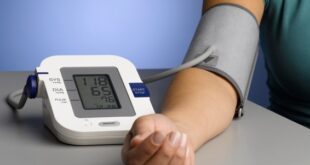Good vision helps you perform well—at home, at work, or behind the wheel. That’s why it’s important to take a few simple steps to make sure you help keep your eyesight at its best. A regular eye exam is the best way to protect your eyesight – and an easy precaution to take. Here are some tips to help maintain eye health as you age.
Eat a Balanced Diet
 As part of your healthy diet, choose foods rich in antioxidants, like Vitamins A and C; foods like leafy, green vegetables and fish. Many foods – especially fatty fish, such as salmon – contain essential omega-3 fatty acids that are important to the health of the macula, the part of the eye responsible for central vision.
As part of your healthy diet, choose foods rich in antioxidants, like Vitamins A and C; foods like leafy, green vegetables and fish. Many foods – especially fatty fish, such as salmon – contain essential omega-3 fatty acids that are important to the health of the macula, the part of the eye responsible for central vision.
An inadequate intake of antioxidants, consumption of alcohol or saturated fats may create free-radical reactions that can harm the macula – the central part of the retina. High-fat diets can also cause deposits that constrict blood flow in the arteries. The eyes are especially sensitive to this, given the small size of the blood vessels that feed them.
Your eyes are unique, and have their own set of nutritional needs. Ocuvite eye vitamins are specially designed to provide a balanced combination of nutrients dedicated to the health of your eyes.* Visit Ocuvite.com to learn more.
Exercise
Exercise improves blood circulation, which improves oxygen levels to the eyes and the removal of toxins.
Get a good night’s sleep
You’ll feel the difference when you get the sleep you need. You’ll look great, you’ll perform at home or work—and good rest will support the health of your eyes.
Wash your hands
Keeping your hands clean is so important when it comes to your eyes, especially if you’re a contact lens wearer. Before you touch your eye—and before you put in or remove a contact lens—wash your hands with a mild soap and dry with a lint-free towel. Some germs and bacteria that come from your hands can cause eye infections, like bacterial conjunctivitis (pink eye). When you touch your eye, whatever is on your fingers goes right onto your eye’s surface. This is one way that people catch colds—rubbing their eyes while they have cold virus germs on their hands.
Don’t Smoke
Smoking exposes your eyes to high levels of oxidative stress. While the connection has not been clearly identified, it is known that smoking increases your risk for a variety of health conditions affecting the eye. To help you quit, visit the American Lung Association’s free online smoking cessation program – Freedom From Smoking Online – at www.ffsonline.org.
Wear Sunglasses
To protect your eyes from harmful ultraviolet (UV) light, choose sunglasses with both UVA and UVB protection. Also, wearing a hat with a brim will greatly reduce the amount of UV radiation slipping around the side of your sunglasses.
Devices and Blue Light
You’re probably using digital devices for hours each day at work and at home. These devices are exposing your eyes to high energy blue light. It’s called blue light because the wavelengths emitted are near the bluer part of the spectrum. Lutein & Zeaxanthin are eye nutrients that are concentrated in the macula and help eyes filter blue light.* Lutein and Zeaxanthin cannot be produced by our bodies on their own, so they must be obtained through diet and/or supplements. If you don’t think you’re getting enough in your diet, visit Ocuvite.com to learn more.
Here are some other tips to help when you’re on your computer:
- Keep your computer screen within 20″-24″ of your eye.
- Keep the top of your computer screen slightly below eye level.
- Adjust lighting to minimize glare on the screen.
- Blink frequently.
- Take a break every 20 minutes to focus on an object 20 feet away for 20 seconds.
- Use lubricating eye drops to soothe irritated, dry eyes.
 Gistfox Your News Window To The World
Gistfox Your News Window To The World 




